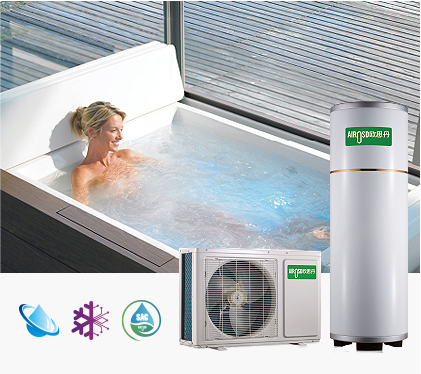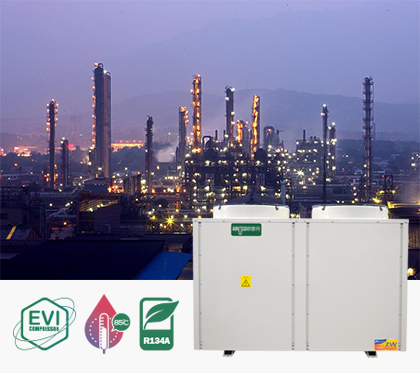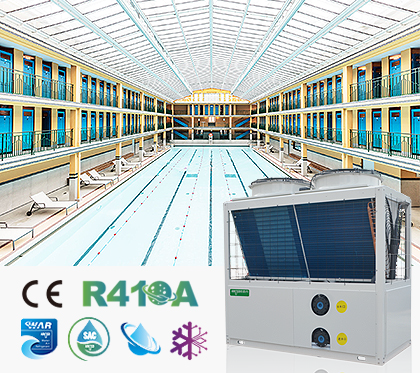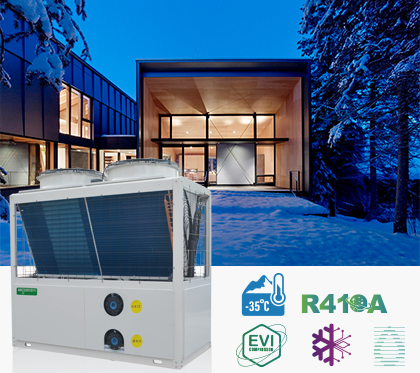Heat pumps and furnaces are two common solutions for keeping our homes warm and pleasant throughout the cooler months. Both of these heating systems have advantages, but they work differently and cater to distinct demands. In this article, we will explore the differences between them, and help you decide which one might be the better choice for your home.
Energy Efficiency
Heat Pump Efficiency
Heat pumps are renowned for their impressive energy efficiency, making them an attractive option for eco-conscious homeowners.
In moderate climates, where temperatures remain above freezing, heat pumps can operate efficiently throughout the year. They can perform both heating and cooling services during these times, essentially removing the need for separate air conditioning systems. This dual functionality improves their overall efficiency and lowers their energy usage.
However, the efficiency of heat pumps can decline in colder climates, especially during extreme winter conditions. As the outdoor temperatures drop, the heat pump may struggle to extract enough heat from the surrounding air to adequately warm the indoors. To compensate for this lower efficiency, some heat pump types have supplementary heating components that activate when external temperatures fall below a certain threshold. While these components provide more warmth, they consume more energy, reducing the system's overall efficiency.

Wholesale Air To Water Heat Pump
Furnace Efficiency
Furnaces, on the other hand, rely on combustion to produce heat. The efficiency of a furnace is measured by its annual fuel utilization efficiency (AFUE), which indicates the percentage of fuel that is effectively converted into heat.
Furnaces excel in colder climates, where heat demands are higher. They can quickly heat up a home and maintain consistent warmth even during freezing temperatures. The combustion mechanism within a furnace allows it to create heat quickly, making it an enticing alternative for individuals looking for immediate warmth on cold winter days.
However, the efficiency of furnaces is limited by the type of fuel they burn. Traditional fossil fuels like natural gas, oil, or propane release carbon dioxide and other greenhouse gases when burned, contributing to environmental pollution. While high-efficiency furnaces emit fewer greenhouse gases than previous versions, they still create more than heat pumps, which run entirely on electricity.
Performance In Different Climates
Heat Pumps In Cold Climates
In regions with severe winters and sub-freezing temperatures, the performance of heat pumps can be affected. As the outdoor temperatures drop, the amount of available heat for the heat pump to extract diminishes, reducing its heating efficiency.
To overcome this issue, some sophisticated heat pump models have dual-speed compressors or additional heating elements known as auxiliary or emergency heat. These features help the heat pump maintain sufficient warmth indoors during extremely cold weather. However, activating these supplementary heating elements increases energy consumption, offsetting some of the benefits of the heat pump's natural energy efficiency.

Water Source Heat Pumps Manufacturer
Furnaces In Cold Climates
Furnaces are well-suited for cold climates and can provide reliable and consistent heating even during the coldest winter months. They may swiftly generate a substantial quantity of heat, quickly elevating the room temperature to the required level.
However, it is important to note that the efficiency of a furnace can also be influenced by factors like proper insulation, ductwork, and regular maintenance. A well-insulated home with properly functioning ducts and a high-efficiency furnace can contribute to significant energy savings.
Heat Pumps Vs Furnaces In Warm Climates
In regions with milder winters and hot summers, heat pumps shine as an energy-efficient solution for year-round comfort. During the cooling season, they can extract heat from indoors and transfer it outside, effectively acting as air conditioners. This dual functionality allows homeowners to save on both heating and cooling costs, making heat pumps an attractive choice for warm climates.
Furnaces, being specialized heating systems, might not be as relevant in regions where cooling needs are more prevalent than heating. Homes in warm climates that rarely require heating may see a minimal advantage from investing in a heater.

Wholesale Commercial Swimming Pool Heat Pump
Conclusion
There is no one-size-fits-all solution between heat pump and furnace dispute. Both methods have advantages and disadvantages, and the best option relies on your unique circumstances and preferences. If you are looking for a trusted heat pump manufacturer, look no further than AIROSD! Browse our website for more product details now!



